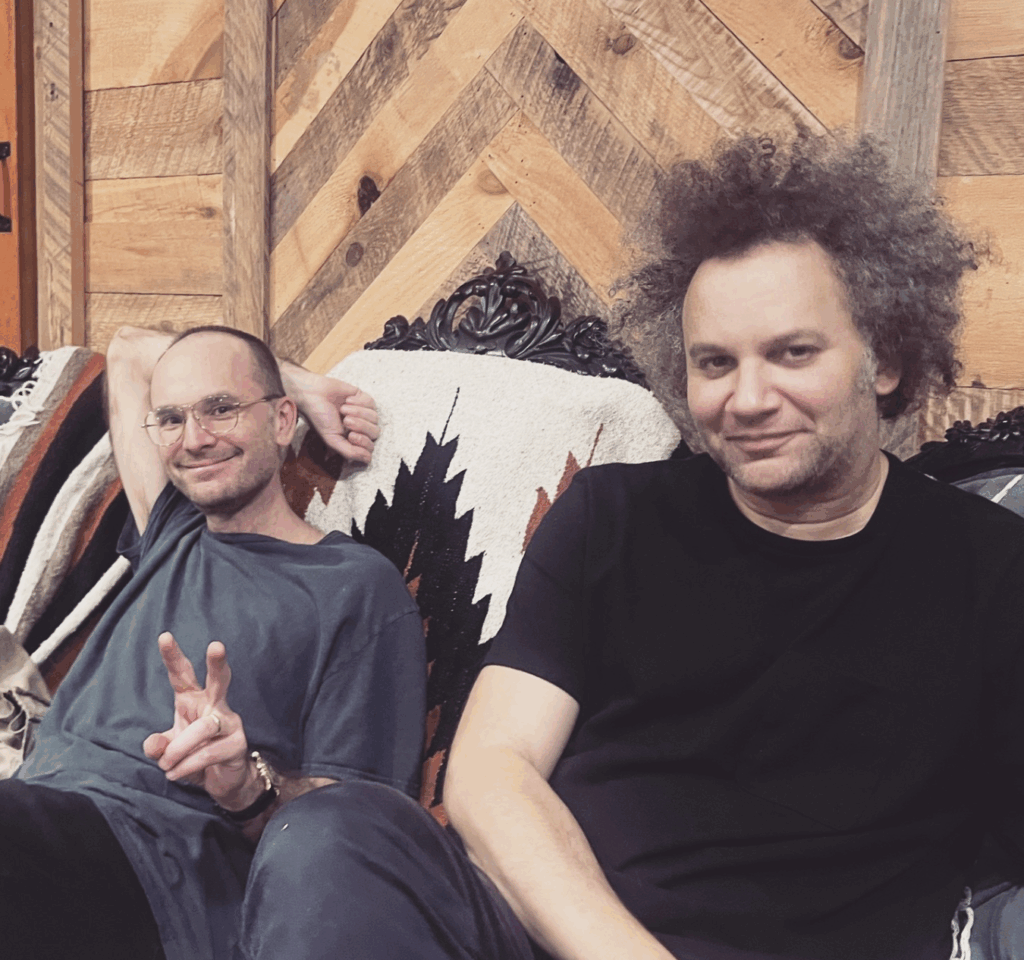From Grand Stages to Intimate Venues: Tyondai Braxton’s Evolving Musical Journey
Renowned guitarist and composer Tyondai Braxton, formerly a key figure in the avant-garde art-rock ensemble Battles, has transitioned from commanding large concert halls to embracing more personal, close-knit performances. His 2022 piece, “Telekinesis,” an intricate composition blending orchestral and choral elements, was showcased at London’s prestigious Queen Elizabeth Hall, a venue seating nearly a thousand attendees. Yet, Braxton expresses a particular satisfaction in performing this weekend at D.C.’s Rhizome, a much smaller space that fosters a different kind of musical intimacy.
Intimate Settings Foster Deeper Connection
“I believe this environment will be ideal for the kind of music Ben and I are creating,” Braxton explains during a video interview from his residence near Princeton University, where he has been teaching since 2022. “The music itself lends itself to a more personal, close-up experience.”
Collaborative Performances with Electronic Foundations
For this upcoming show, Braxton and his longtime collaborator Ben Vida will present what Braxton describes as an “activated drone performance,” primarily utilizing electronic instruments. “I’ll be playing guitar, looping sounds with various pedals and devices, while Ben will operate modular synthesizers and other electronic tools,” he elaborates. This duo’s performance is part of the Seventh Stanine Festival, an all-day event that celebrates experimental and boundary-pushing music.
Festival Lineup and Artistic Diversity
The festival’s lineup is a testament to musical innovation, featuring artists such as Wendy Eisenberg-who combines guitar, banjo, and electronic textures-Deakin (Josh Gibb) from Animal Collective, sonic collage artist Lucy Liyou, guitarist Emily Robb, and guitarist Jon Camp. The Caribbean, a D.C.-based trio that founded the festival in 2017, also performs, emphasizing the event’s commitment to showcasing diverse experimental voices.
Elevating the Artistic Scope
Matthew Byars, the drummer and guitarist of The Caribbean and the festival’s main organizer, shares insights into the festival’s evolving vision. “This year, we intentionally aimed to feature artists with broader recognition-those who can draw larger audiences-yet we present them in intimate venues,” he states in a recent interview. “There’s something uniquely powerful about experiencing music in a smaller space, where the connection between performer and audience feels more immediate.”
The Meaning Behind the Name and Artistic Roots
Byars, who also works as a schoolteacher, explains the festival’s unusual name. “‘Stanine’ is a term from standardized testing, used to scale scores. It’s more about the sound and rhythm of the word than any specific meaning,” he notes. Despite The Caribbean’s roots in experimental music, he acknowledges that some listeners might not immediately recognize the band’s influences or the festival’s avant-garde focus.
Bridging Mainstream and Experimental Music
“People often don’t realize how deeply we’re influenced by experimental sounds,” Byars emphasizes. “Our music may include song-like structures or guitar elements, but at its core, it’s rooted in the same exploratory spirit as the more avant-garde acts we feature. That’s where our true passion lies.”
From Battles to Solo and Electronic Explorations
After departing from Battles in 2010, Braxton expanded his musical horizons, delving into electronic improvisation, composed works, and teaching emerging composers. “Initially, I wasn’t eager to teach,” he admits. “But over time, I found it incredibly rewarding and enriching for my own creative process.”
Instrumental Evolution and Creative Approaches
When composing for others, Braxton primarily relied on guitar, trusting his instinct with his main instrument. “For notation-heavy pieces, I often turn to the piano,” he explains. Over the years, he has incorporated a broad array of electronic devices into his work, appreciating the genre’s flexibility. “Electronic music isn’t bound by strict rules; it’s constantly evolving as new technology emerges, offering endless possibilities,” he says.
Performance as a Dynamic, Improvisational Art
Beyond composition, Braxton frequently performs solo or in small electronic ensembles. These performances often involve improvisation, a practice he values highly. “I realized early on that live performance should be unpredictable-something that can change each night,” he reflects. “Injecting a sense of risk keeps the music fresh and engages both the performer and the audience on a deeper level.”
Upcoming Event Details
Experience this innovative performance on June 14, from 1 to 9 p.m., at Rhizome, located at 6950 Maple St. NW, Washington, D.C. Tickets are priced at $50. For more information, visit rhizomedc.org.

